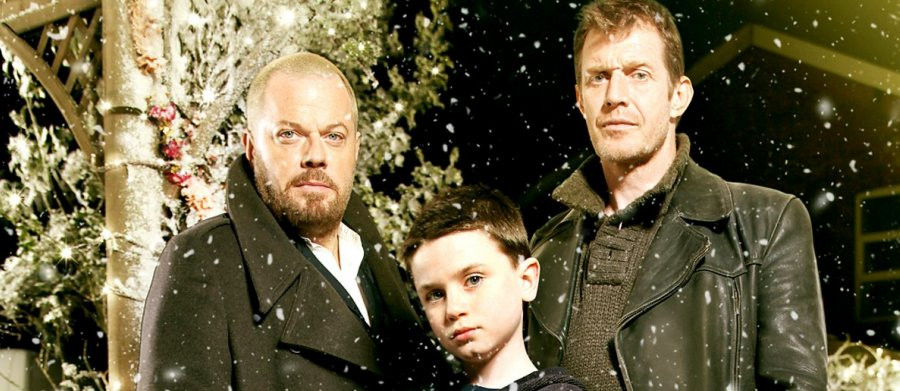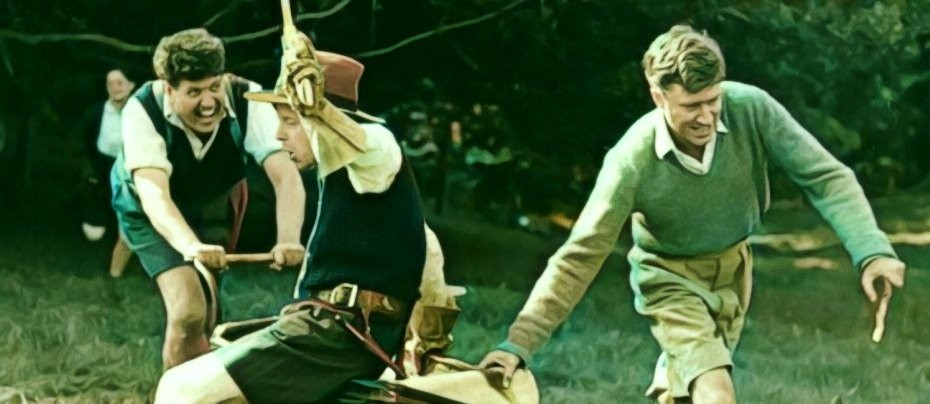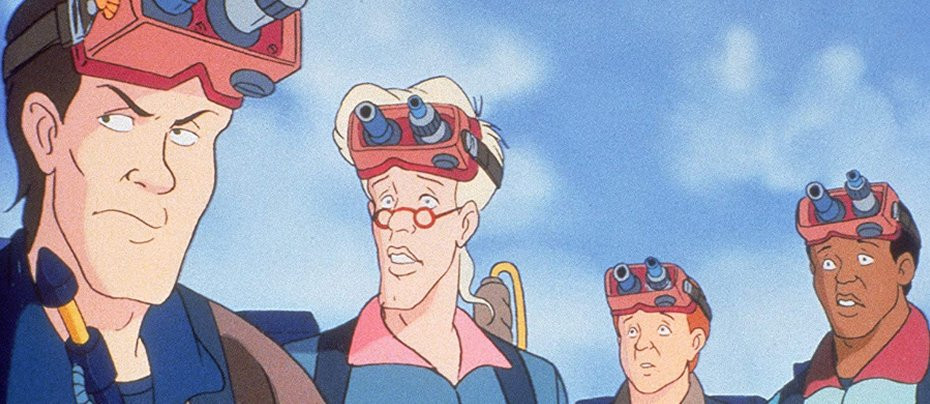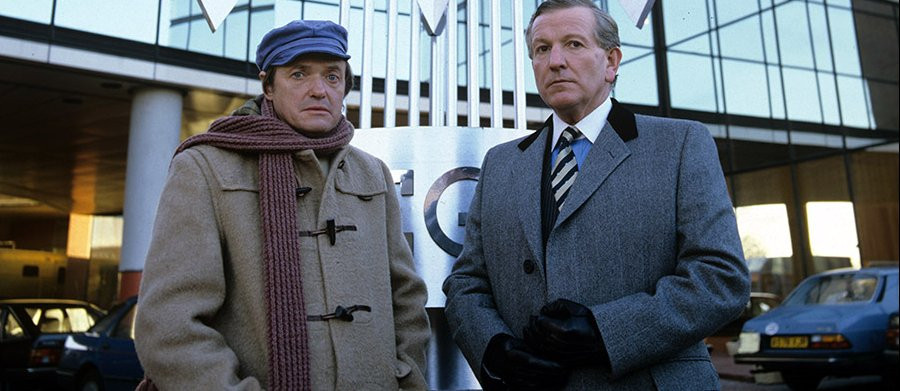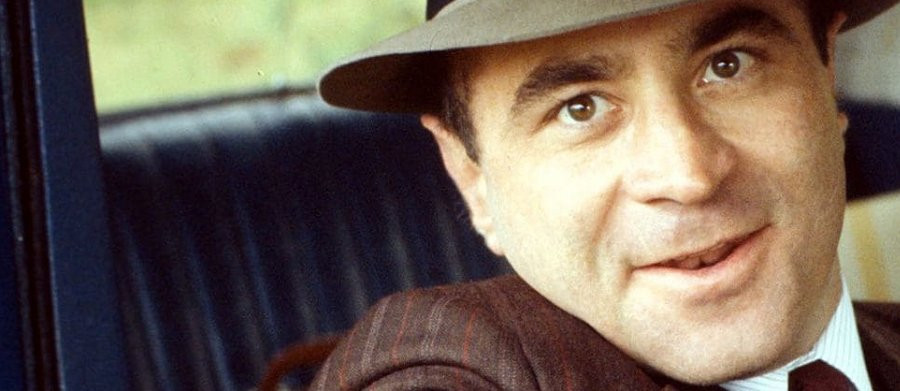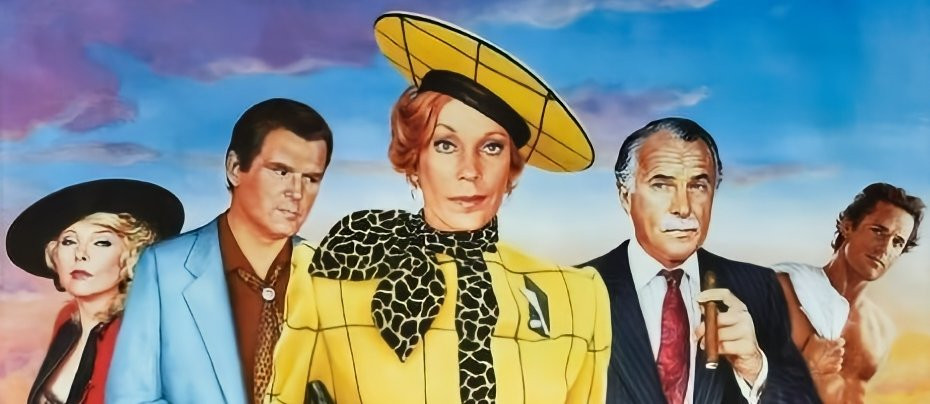
The Singing Detective
1986 - United KingdomReview: Frank Collins
"The Singing Detective is a summation of Potterana. It is his Hamlet, his Ulysses ... his White Album. It is a vade mecum of his themes and concerns and characters and techniques" - W. Stephen Gilbert Fight and Kick and Bite: The Life and Work of Dennis Potter (1995)
Originally broadcast in November 1986, The Singing Detective might well be considered one of the last, great original works for television. It also forms part of what would become a loose trilogy with Pennies From Heaven (BBC 1978) and Lipstick On Your Collar (Channel 4 1993) with each one, respectively, using popular music from the 1930s, 1940s and 1950s, as a way of emotionally underlining the internal dramas of characters in each story, especially in the case of the first two serials and the use of the then rather innovative lip-sync techniques for characters bursting into song.
Much as Potter would deny it, The Singing Detective is part autobiographical and part a recycling and refining of past material, the ultimate synthesis of themes he had been writing about since his television drama breakthrough with Stand Up Nigel Barton (BBC 1965). The serial is a dramatisation of his own remote, God-fearing working class upbringing in the Forest Of Dean, focusing on the schism between childhood and adulthood complete with an obsession about sexuality and violence; his often antagonistic fascination with pulp and popular cultural forms, particularly B movies and popular music; and his suffering through a debilitating psoriatic arthropathy that he may well have literally connected with the Old Testament narrative about sins of the flesh.
You can also track The Singing Detective’s lineage back to the views expressed on childhood betrayal in Stand Up Nigel Barton (the head mistress played by Janet Henfrey reappears in much the same role in The Singing Detective) and Blue Remembered Hills (BBC 1979); the lip sync musical format of Pennies From Heaven (1978); the narrator/author as a fiction in reality of Follow The Yellow Brick Road (BBC 1972); the examination of sexuality in Casanova (BBC 1971); abuse and therapy at the centre of Moonlight On The Highway (ITV 1969) as well as the 1973 novel 'Hide And Seek' in which a desperately ill man, a writer, announces to his psychotherapist that he is a character in a novel (themes that would also later emerge in 'Karaoke') and includes much of the conversation between Marlow and Dr. Gibbon that would find its way into the 1986 serial. Similarly the novel, like 'The Singing Detective', examines the nature of fiction and the relationship between the author, reality and fantasy.
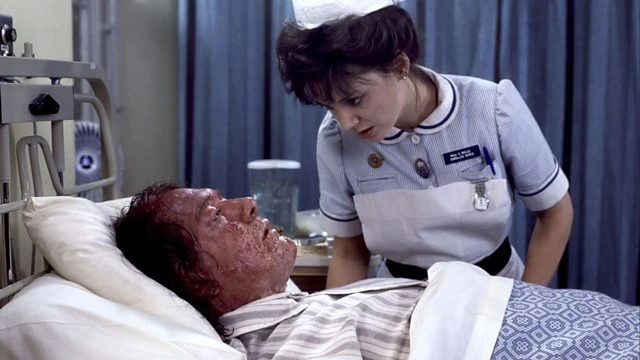
The opening narrative in The Singing Detective is relatively linear. A writer of detective pulp fiction, Philip Marlow, is seriously ill in hospital. As he succumbs to the grip of fever dreams, he decides to rewrite the narrative of one of his old novels in his head as a therapeutic aid towards his physical and mental recovery. As this process begins, the events on the ward, the novel’s pulp detective narrative, his childhood memories and the fear of his wife’s sexual betrayal begin to merge. It becomes a psychological detective story where one man gradually sifts through the debris of his life in order to reconstruct it. It is by no means a depressing story; rather it is a triumphant one where the damaged Marlow conquers his guilt, fears, prejudices, inadequacies and illness to re-emerge as a better man. Like many Potter dramas, it is a reaffirmation of faith; that some good will emerge from the darkest, bleakest moments of our past and that we learn to forgive ourselves for our inhuman, and conversely human, indiscretions.
This complex slippage between narrative forms is conveyed through the noir stylings of a Chandler-esque pulp novel where a detective, who happens to be a night club singer, solves a wartime spy plot involving Russian agents; the Carry On tragi-comedy and Busby Berkeley musical tropes of the activity in the hospital ward; the searing portrait of a childhood seen through the prism of school friend rivalry, a parent’s sexual infidelity, the tragic relationship with his mother set amidst the juxtaposition of the urban sprawl of London and the greenery of the Forest Of Dean; and finally the alignment with Reagan era neo-noir that can be found in 'Blue Velvet' (1986) and 'Manhunter' (1986) where Marlow’s wife, Nicola, plots to sell the rights of his novel to a big Hollywood studio and is the victim of a grisly murder. The serial becomes not only the narrative that you are watching but also the narrative being constructed in Marlow’s head and consequently the same actors, including Michael Gambon, Alison Steadman and Patrick Malahide play variations of the main characters in the film noir of 1940, the social realist drama in 1930 and the thriller in 1980. This overlap, and Marlow’s psychological break-through, culminates with gangsters featured in the film noir sub-plot, attempting to track down the ‘singing detective’, emerging into both the subplots based in 1980 and 1930 as the story liberates Marlow from his guilt. In the end, the serial is as much about the power of narrative to shape, inform and heal us as individuals as it is a dizzying array of non-naturalistic, non-chronological tropes, symbols, songs, parables and pastiches to deconstruct Marlow, as ‘he casts his private eye inwards’, as an author and also as a man, to delineate between the realities and the fictions of the self.
At the centre of the serial is an astonishing performance by Michael Gambon. He beautifully conveys the anger and bitterness of the bed-ridden author, who is often savage and brutal in his cynical attack on fellow patients, his wife and the world at large, but he also reveals the extreme vulnerability that comes from seeing his own life laid out as an open wound, physically and mentally, that reduces him and, by extension, the audience to tears. Gambon, Steadman and Malahide had the most difficult task as actors because they play characters that slip across all three narratives with Steadman as Mrs Marlow and Lilli, and Malahide as Raymond Binney, Mark Binney and Finney. Their ability to control these characterisations throughout the fractured narratives clearly owes much to the way director Jon Amiel worked closely with Potter on the structuring of the six part serial. Young Lyndon Davies is also superb as Marlow at the age of ten, confronting God in his heaven by climbing up into the trees and dealing with the earthly disintegration of his parents’ marriage.
Potter’s The Singing Detective also angered campaigner Mary Whitehouse who claimed that Potter’s mind had been warped by the memory of catching his own mother inflagrante delicto. It is actually the spectre of child abuse that looms large across Potter’s work and the scene where Mrs. Marlow is more or less raped by Raymond Binney was, not as Whitehouse believed, a moment of Potter’s own guilt but a further prompt in the debate about Potter’s attitude towards women in his work that, judging by Humphrey Carpenter’s biography, was also less than enlightened or completely healthy. This problematic objectification of women and exploitation of sexuality was bravely tackled by Potter by the later 'Blackeyes' (BBC 1989) that, although it attracted the opprobrium of the tabloids of the time, is now long overdue for a critical re-evaluation.
A 2003 film version of The Singing Detective, with Robert Downey Jnr, received very mixed reviews and so it is the six part BBC serial that remains as Potter’s magnum opus and a career high that would never be repeated in the later, flawed works such as Lipstick On Your Collar (Channel 4 1993), Karaoke (Channel 4/BBC 1994) and Cold Lazarus (Channel 4/BBC 1994). At number 20 in the BFI TV 100, The Singing Detective remains as a seminal television work, stretching the possibilities of the medium in its defiance to tell a story in non-linear, non-naturalistic and boldly cinematic ways. The six-part serial has been released by BBC DVD and features a commentary by director Jon Amiel and producer Kenith Trodd on all six episodes. It also has a number of special features, including short clips from 'Points of View' and an Arena profile plus the documentary Close Up: Dennis Potter.
Seen this show? How do you rate it?
Seen this show? How do you rate it?
Published on January 29th, 2019. Written by Frank Collins for Television Heaven.


